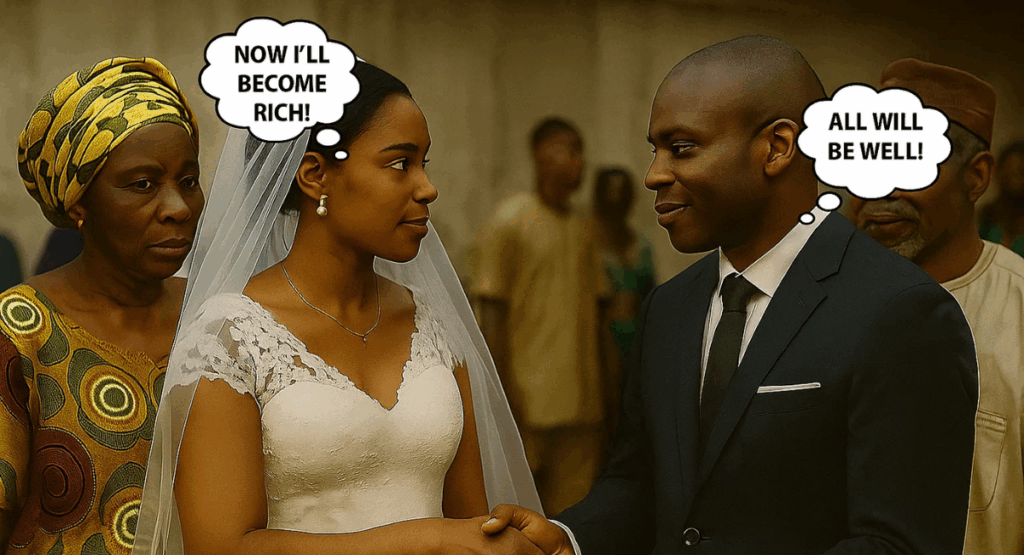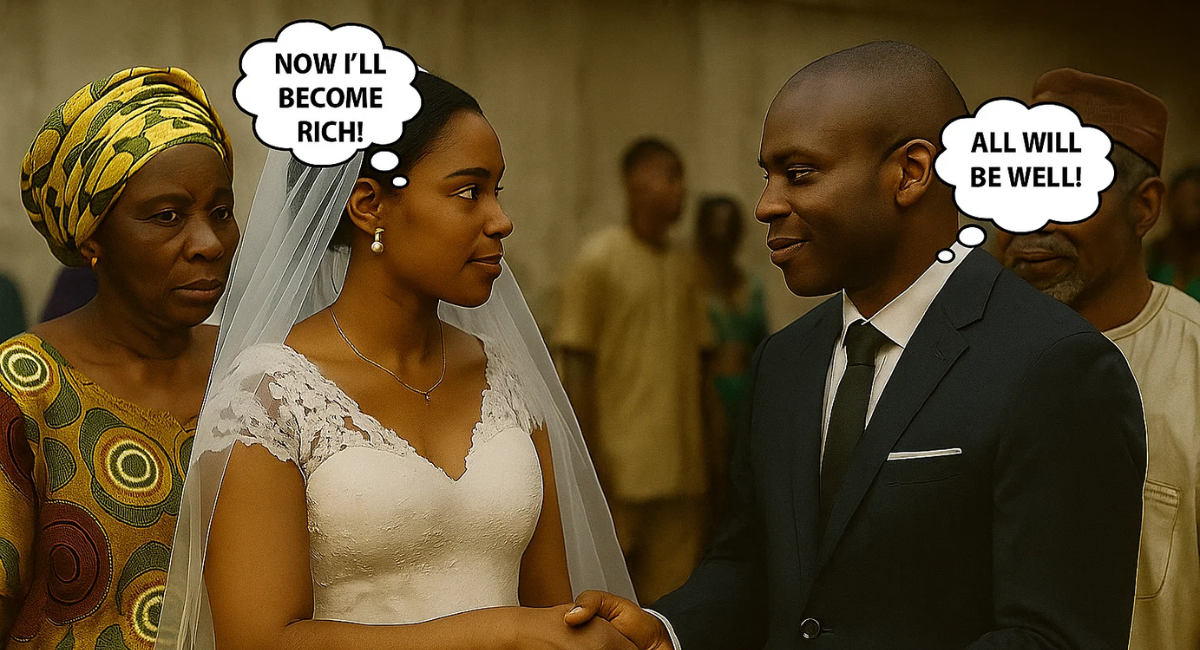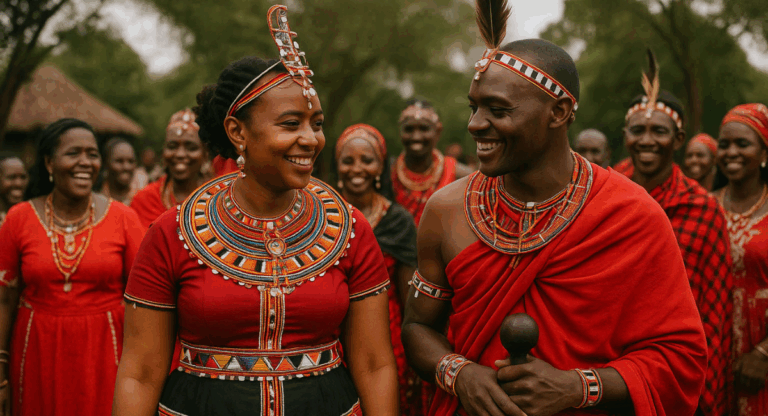The Rise of Strategic Marriages in Africa

Across African towns, villages, and capital cities, something quiet but powerful is changing in how people choose life partners. Romantic love is still alive, but it’s no longer the only thing guiding people into marriage. In today’s world, many African couples are entering marriages that are not just about emotions. They are about survival. About power. About peace. About the future.
These are not the arranged marriages decided by elders without choice. They are intentional choices made by people who understand the weight of economy, opportunity, class, and connection. These marriages are strategic, and they are rising.
Download Pendova on Google Playstore:

iOS Users can access Pendova app on web.pendova.com
1. Love and Survival
Falling in love is beautiful, but in many parts of Africa, it is no longer enough. People are asking harder questions before they say “yes.” Can this person provide stability? Do we have the same goals? Will I be better or worse off with them?
With rising living costs, rent that eats up half a salary, and education that keeps getting more expensive, survival is now part of the love story. Many women are choosing men who have jobs, not just jokes. Men are picking women who can contribute, not just be carried. Even when there is love, people are building relationships like partnerships. They’re making sure they don’t just end up emotionally full but financially empty.
2. Family Matters
In Africa, marriage is rarely a private affair. When you marry someone, you marry their people. Their mother’s beliefs. Their father’s rules. Their community’s standards. That’s why many couples don’t just ask if they’re in love. They wonder whether their families will accept the choice.
Tribal lines, religion, language, and even family reputation still hold weight. A Yoruba girl might be in love with an Igbo man, but the parents remind her of “differences.” A Christian man might fall for a Muslim woman, but the families start drawing invisible lines.
So even when two hearts say yes, families can say no. That’s why people sometimes avoid emotional mess and go straight for someone the family will welcome. Less stress. More acceptance. It’s a thoughtful choice. It may not bring excitement, but it often brings peace
3. Power and Position
Across the continent, you’ll find stories of people who didn’t just marry for love. They married into influence. Into a name that opens doors. Into a legacy that guarantees safety. A young lawyer marries a senator’s daughter, and doors that were once closed start to open. A woman from a modest family marries a political aspirant, and within months, she’s sitting at government events. These marriages are not random. They’re rooted in ambition.
Sometimes both sides benefit. One brings power. The other brings beauty, loyalty, or calm. It’s a quiet exchange. No one says it out loud, but everyone knows what’s happening. And in some cases, the love comes later. But the opportunity came first.
4. Class and Education
As more young Africans get university degrees, travel abroad, and enter new professional spaces, the kind of partner they want changes too. People want someone who understands their life, their dreams, and their vocabulary.
A woman with a PhD might struggle to connect with a man who didn’t finish high school. A man who studied in Canada might feel misunderstood by someone who has never left the village. These gaps become real. Conversations feel strained. Visions no longer align.
That’s why many choose partners within their academic or financial class. It’s not pride. It’s practicality. They want a home where they don’t have to shrink or explain themselves all the time. They want ease and that ease often comes through strategy.
5. Diaspora Deals
In the diaspora, love often wears a different outfit. African immigrants in Europe, the US, or the Middle East sometimes marry not for emotion but for paperwork, security, or cultural preservation.
A Nigerian man in Germany might marry a woman he barely knows, just to get his documents sorted. A Ghanaian woman in the UK might agree to marry a friend, not out of passion, but to keep her visa. These marriages are functional. Silent contracts, with mutual benefits.
In other cases, people in the diaspora marry someone from their ethnic group back home to keep tradition alive. Parents push for “our people,” even if the chemistry is missing. The idea is simple: marry someone who will help you move forward, not someone who might hold you back.
6. Women Rewriting the Script
For years, women were expected to wait to be chosen. Today, a growing number of African women are changing that story. They are choosing too. And they are choosing wisely. With more women becoming financially independent, emotionally intelligent, and deeply self-aware, marriage is no longer a rescue plan. It’s a decision. And for many, it’s a business of the heart with a clear mind.
They ask hard questions: Is he kind? Is he financially reckless? Does he value growth? Some are choosing older men for stability. Others are choosing to stay single until they find someone who sees them clearly. Strategic marriage, for these women, is not selfishness. It is self-respect.
7. Polygamy
Polygamy is still practiced in parts of Africa, and while some see it as outdated, others see it as deeply strategic. A wealthy man might marry multiple wives to extend his influence, ensure family legacy, or bring unity between clans.
In farming regions, more wives might mean more hands to work the land. In royal or political homes, taking more than one wife can help build alliances and keep the peace. In Muslim communities, it may be a spiritual and cultural practice tied to religion.
But even within polygamy, strategy plays a role. Wives position themselves. They secure the future of their children. They form alliances or rivalries, depending on who holds power. Love exists, but it lives alongside careful calculation.
8. City Life and Love
Cities like Nairobi, Lusaka, Kampala, and Johannesburg are full of people chasing big dreams. Everyone is trying to make it. And in this hustle, love sometimes gets replaced with opportunity. Young people in urban centers date with eyes wide open. A man might choose a woman with a large social following to boost his brand. A woman might date a tech guy with potential for a startup breakthrough. These aren’t fairy tales. They’re business moves wrapped in romance.
Even when feelings are real, people are aware of the gains. They support each other’s hustle. They grow into each other, even if the foundation wasn’t originally emotional. For many, it works. Because in this kind of love, you both come to the table with something to offer.
9. Bride Price Pressure
Bride price is still alive across many cultures. For some, it’s a way of showing honor. Others see it as a burden. But either way, it shapes how people think about marriage. When families demand large sums, like cows, goats, cash, or gold, marriage becomes a transaction. Men start to see wives as investments. Families expect returns. And women feel pressure to “justify” their cost. This changes the emotional tone of marriage.
Some men delay or avoid marriage altogether because the financial pressure is too high. Others borrow just to meet expectations. And in that debt, love sometimes gets lost. Strategic marriages in this context are not about feelings. They are about affordability, timing, and negotiations.
10. Smart Commitments
It is easy to judge strategic marriages as cold or unromantic. But many of these marriages turn out to be deeply loving. Because love is not always about butterflies. Sometimes it’s about trust. About growing together. About building something strong.
When two people agree on their purpose, when they support each other’s dreams, when they communicate well, love often follows. In fact, strategic marriages can create deep emotional intimacy because the foundation is clear. No lies. No pretense. Just partnership. Not all strategies work. Some fall apart. But when they do work, they offer something many romantic marriages lack, such as stability, vision, and shared direction.
Final Thought
Strategic marriages are not the opposite of love. They are simply love spoken in a different language. A language of survival. A language of growth. A way of mixing feeling with practical sense.
In today’s Africa, where life is beautiful but tough, where tradition meets modernity at every corner, people are finding new ways to love. Ways that protect them. Ways that build them. Ways that make sense. And maybe that’s still love, only more aware and honest.
Follow our Social Medias:







